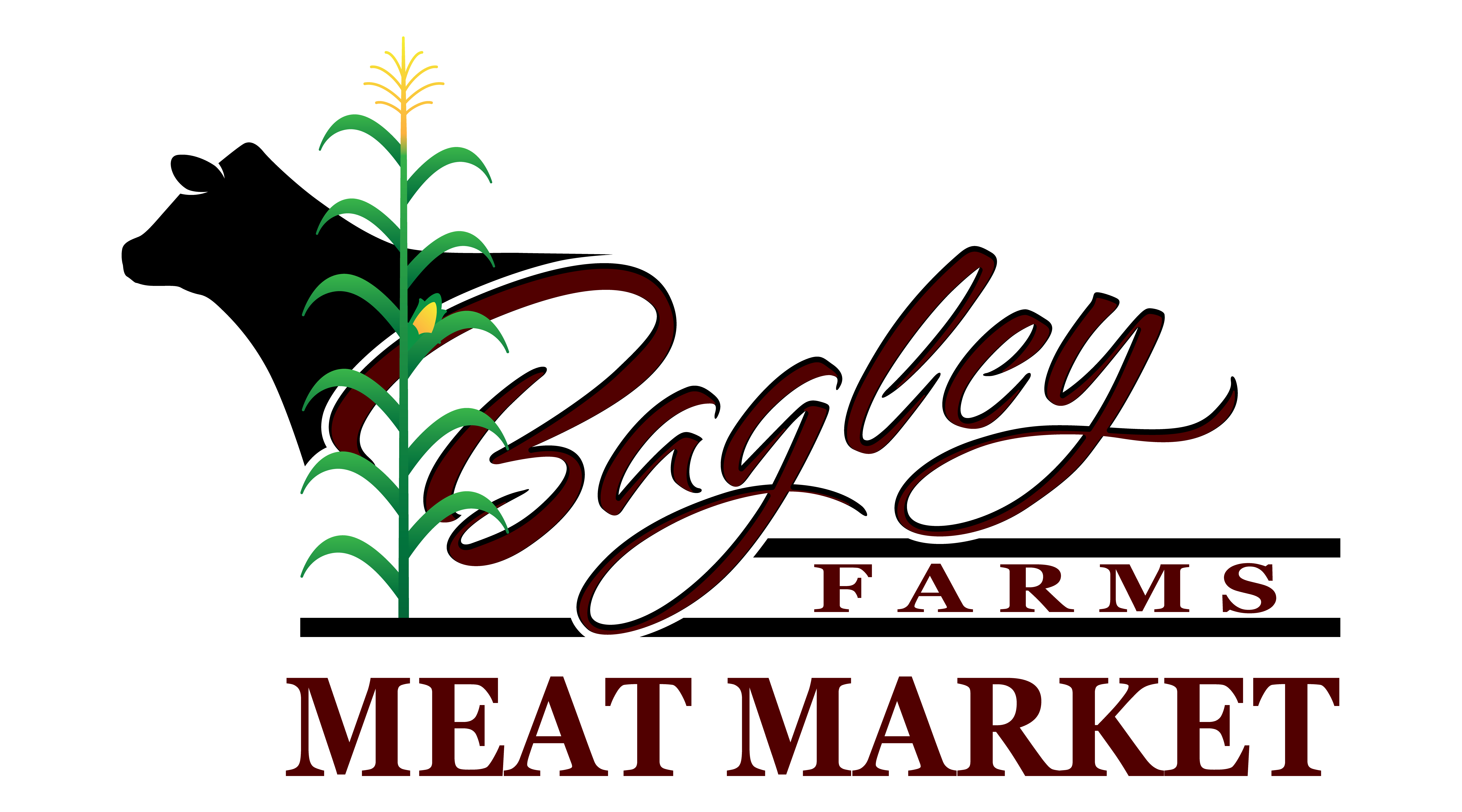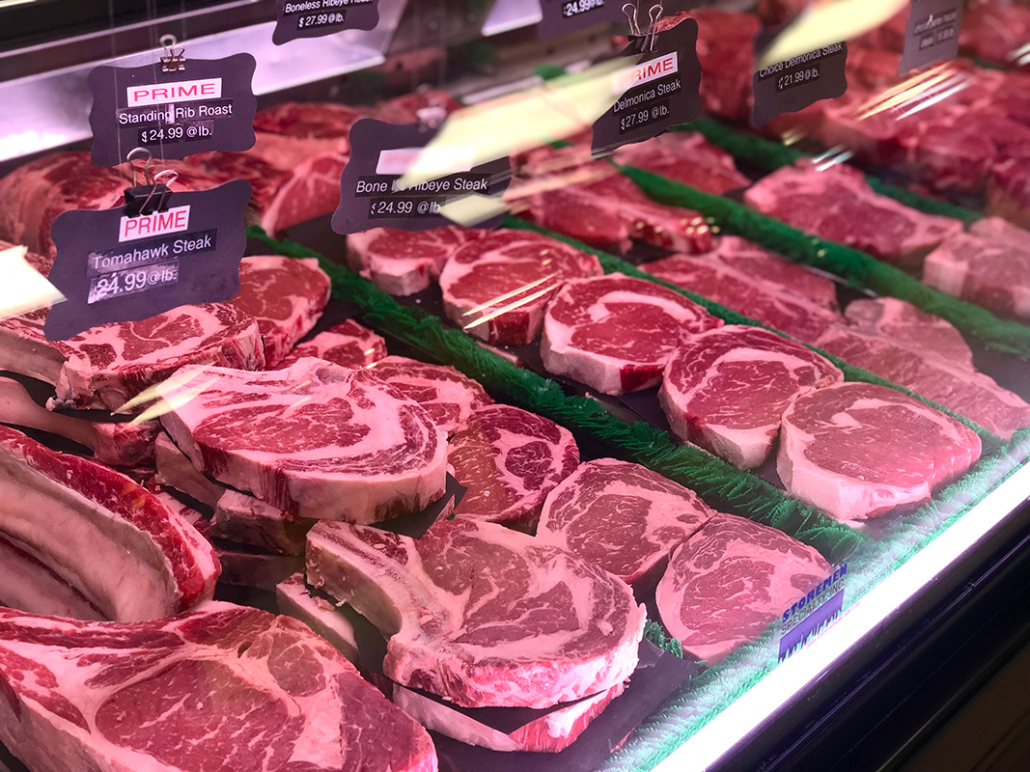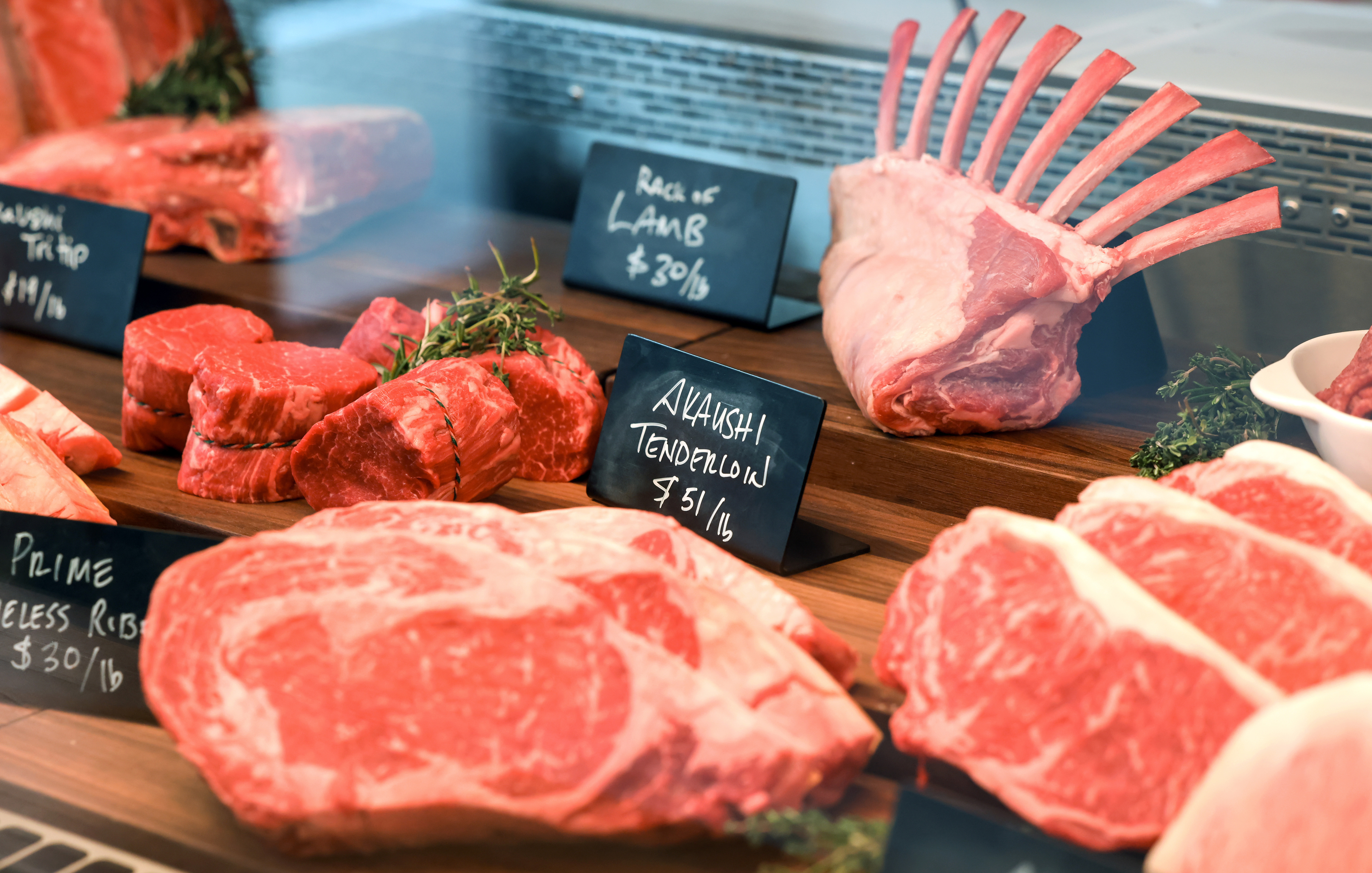Why Choosing a Meat Market Over a Supermarket Makes a Difference in Preference and Quality
The difference between buying meat from a specialized market versus a grocery store commonly exists in the nuanced layers of preference and quality. Meat markets normally highlight freshness, sourcing their items from neighborhood ranches, which not just boosts flavor but likewise cultivates sustainable methods. The knowledge of knowledgeable butchers can supply indispensable insights into choosing the ideal cuts for different culinary applications, guaranteeing an extra tailored experience. The ramifications of these selections extend beyond simple taste; they elevate essential questions about the more comprehensive effect on customer practices and local economies. What else might be at risk?

Quality of Products
Focusing on freshness is a significant benefit of picking a meat market over a supermarket. Meat markets generally offer items that are sourced in your area and processed with an emphasis on preserving ideal freshness. Unlike grocery stores, where meat might be saved for prolonged durations, meat markets typically receive everyday distributions, making sure that their supply is constantly renewed with top quality cuts.
Moreover, meat markets generally have a much more reliable supply chain, lessening the moment from farm to table. This fast turnover not just improves the taste and appearance of the meat but likewise offers customers with guarantee regarding the high quality of the products they acquire. The experienced butchers at meat markets can also give valuable insights into the freshness of their offerings, as they are totally acquainted with their distributors and the conditions under which the meat is dealt with.
In addition, meat markets often prioritize whole cuts and specialized items that may not be readily available in grocery stores, permitting customers to check out a variety of choices that are fresher and a lot more flavorful. This dedication to quality inevitably contributes to a premium cooking experience, making meat markets an appealing choice for discerning consumers.
Sourcing and Sustainability
The dedication to high quality at meat markets extends beyond quality to encompass sourcing and sustainability methods. Unlike big supermarkets, which often rely upon mass-produced products, meat markets focus on ethical and neighborhood sourcing. This method not only sustains regional farmers and herdsmans however also reduces the carbon impact related to moving meat over cross countries.

In addition, meat markets often provide a range of cuts and specialized meats that show the seasons and neighborhood cooking customs. This commitment to sustainability promotes a connection between consumers and their food resources, promoting openness regarding the beginnings of the meat they acquire. By picking meat markets, customers can enjoy not just boosted flavors however also the contentment of supporting responsible and sustainable agricultural practices.
Expert Knowledge and Recommendations
While purchasing at a meat market, clients gain from the expert understanding and personalized recommendations provided by knowledgeable butchers. These specialists are typically well-trained and possess comprehensive experience in the meat market, allowing them to supply insights that go far past the basics discovered in a grocery store. They can direct customers on picking the right cuts for particular recipes or events, guaranteeing optimum flavor and inflammation.

Additionally, butchers commonly make the effort to involve with customers, responding to inquiries and sharing ideas that are not easily offered in a supermarket setup. This level of individualized service cultivates a deeper connection in between consumers and their food, eventually elevating the overall culinary experience. By selecting a meat market, consumers obtain accessibility to a wealth of knowledge that can significantly affect their cooking and pleasure of meat.
Taste Accounts and Variety
When discovering the offerings at a meat market, clients are typically rewarded with a diverse variety of flavor accounts and cuts that are commonly not available in supermarkets. Unlike mass-produced meat products, which typically prioritize uniformity, meat markets curate their choices based upon high quality and local specificity. This results in a selection of meats that show distinct tastes, textures, and prep work methods.

Seasonal and in your area sourced choices additionally improve the experience, as these products usually have premium quality and flavor. The well-informed butchers at meat markets can assist customers on the most effective cuts for details recipes, making certain that each selection straightens with wanted flavor profiles and food preparation methods. Generally, the variety and quality found in meat markets not only elevate the culinary experience but likewise encourage exploration and trial and error in home cooking.
Supporting Local Economic Climates
Picking a meat market not just enhances cooking experiences with varied flavor accounts but additionally plays a significant duty in supporting neighborhood economic climates (bagley meat market edwardsville il). They are a useful source lot more most likely to involve with companies that source their items from neighborhood ranches and producers when consumers decide for meat markets over bigger supermarket chains. This practice cultivates a lasting farming environment, motivating farmers to preserve standard approaches that produce premium meats
In addition, meat markets normally utilize neighborhood staff, which adds to work development and retention within the area. The economic influence extends beyond the prompt service; cash spent at regional establishments often tends to flow within the area, profiting various industries such as advertising, transportation, and retail. This local financial investment assists enhance the overall financial health and wellness of the area.
Additionally, meat markets usually highlight transparency and moral sourcing methods, which resonate with customers progressively worried about the origins of their food. By choosing to patronize these facilities, customers not just enjoy remarkable products but also verify their commitment to sustaining their community's economic climate. Essentially, selecting a meat market is a deliberate option that supports both personal complete satisfaction and more comprehensive economic vigor.
Conclusion
Picking a meat market over a grocery store significantly influences taste and top quality. The emphasis on quality, lasting sourcing, and specialist knowledge adds to remarkable cooking experiences. Access to one-of-a-kind cuts and varied taste profiles boosts meal preparation and satisfaction. In addition, sustaining local economic climates promotes community partnerships and advertises sustainable farming techniques. Generally, the advantages of choosing a meat market prolong beyond private choices, influencing broader financial and environmental elements while elevating the art of cooking.
Unlike supermarkets, where meat might be kept for extended periods, meat markets frequently obtain daily shipments, ensuring that their inventory is constantly renewed with premium cuts.
The skilled butchers at meat markets can also offer valuable understandings into the quality of their offerings, as they are totally familiar with their vendors and the conditions under which the meat is taken care of.
Furthermore, meat markets typically offer a selection of cuts and specialty meats that reflect the periods and neighborhood cooking traditions. By choosing additional info a meat market, customers obtain access to a wide range of expertise that can dramatically impact their food preparation and enjoyment of meat.
Unlike mass-produced meat products, which typically prioritize uniformity, meat markets curate their options based on top quality and regional uniqueness.